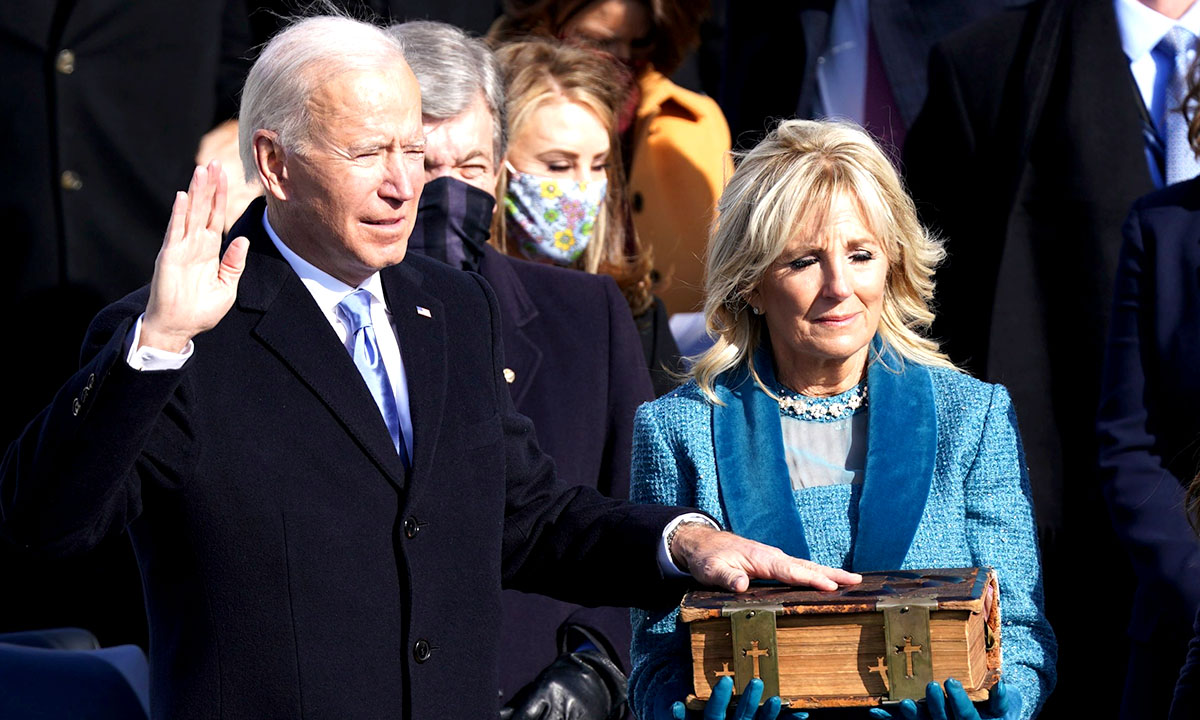

This is democracy’s day. A day of history and hope of renewal and resolve through a crucible for the ages. America has been tested anew and America has risen to the challenge.
President Biden, Inaugural Address, January 20th
For the past few months, the Biden-Harris Transition Team has grappled with a remarkable combination of challenges starting with a global pandemic that has taken 400,000 American lives and forced unemployment on ten million Americans. Record-setting budget shortfalls for state and local governments, a two-month delay in determining control of the U.S. Senate, an uncooperative Trump Administration, House and Senate margins among the narrowest on record, a looming impeachment trial, and an unsustainable federal budget path complicate the implementation strategy for Biden’s agenda and may limit President Biden’s clear desire to “go big” in response to urgent challenges.
On January 14th, President-elect Biden outlined his $1.9 trillion “American Rescue Plan that will tackle the pandemic and get direct financial assistance and relief to Americans who need it the most.” Biden also announced plans to outline his “Build Back Better” recovery plan in his first appearance before a Joint Session of Congress. The ten-year cost of that plan is expected to top $2 trillion.
On January 19th, Janet Yellen, Biden’s Treasury Secretary nominee, reiterated several of the Biden administration’s top priorities, most of which call for greater investment in human capital. A former Federal Reserve Board Chair and head of the Council of Economic Advisers, Yellen stressed to the Senate Finance Committee the imperatives of rebuilding the U.S. economy. She outlined Biden’s domestic agenda as a bottom-up strategy with a central focus on essential workers, other innovators and small-to-medium sized businesses in dire need of support to survive the Pandemic Recession.
Yellen and other Treasury Department officials share with others in Biden’s cabinet and subcabinet extensive government experience. Much of this experience is international, exemplified by Dr. Susan Rice, a former national security advisor and head of the domestic policy council. Of the four ‘core’ agencies (State, Treasury, Defense, and Justice) only the Attorney General nominee lacks extensive global policymaking chops. Unmistakably, President Biden signals in his words and nominations a full reengagement with the world from a position of U.S. strength.
The day before Biden’s Inauguration, Senate testimony by key nominees outlined President Biden’s early agenda. The President plans an active government oriented toward “boldness for there is so much to do,” as the President said on the ceremonial western steps of the Capitol the following day. Key elements of Biden’s agenda include:
- A national strategy to vanquish the pandemic (vaccination logistics, best practices promotion, masks, and compassion), led by scientists charged with developing and implementing preventative and remedial methodologies.
- A strategic growth policy that maximizes national strengths and shores up weaknesses over the longer run. Yellen made clear the administration’s adherence to a strong dollar as determined by market forces. The immediate recovery plan starts with supporting Americans most ravaged by the recession by expanding unemployment insurance benefits and food assistance, and increasing public health expenditures.
- A more coordinated—domestically and internationally—approach to U.S. competition against and negotiation with China on a range of issues, as nominees for Treasury, State, Homeland Security, and national intelligence emphasized. None were more forthright than Yellen in listing the elements of the adversarial relationship (lax market reciprocity, intellectual property “stealing,” forced transfer of technology, and globally corrosive environmental standards).
- An ‘inside-out’ geopolitical posture that seeks first to promote and project U.S. policy preferences when seeking international agreements. This approach is intended to reverse practices of the WTO era (1995–2007) in which the U.S. negotiated global or regional agreements and then sought to win public support for those deals at home.
This Inauguration was unique with attendance limited by a combination of pandemic protocols and security measures following the January 6th assault on the U.S. Capitol. Recognizing the moment, President Biden’s remarks avoided the standard list of agenda items to stress unity, an end to “this uncivil war,” and a compassionate, respectful, truthful tone in government on behalf of all Americans.
Recent events remind us that Democracy is messy with elements of our imperfect union on riotous display, but those pictures don’t paint an accurate portrait of America. Several media outlets characterized January 6th as a constitutional crisis. It wasn’t. Within hours, the House and Senate reconvened and completed the certification of the 2020 Presidential election results. Those actions made President Biden’s inauguration possible. They also ensured that America’s remarkable record dating back to 1789 of the peaceful transfer of power following every Presidential election would continue in 2021.
President Biden and Vice President Harris face daunting challenges. With decades of public service as a U.S. Senator and as Vice President, Biden is as prepared as anyone to preside over what is arguably the largest, most complicated organization on the planet. Biden also brings with him a deep, talented, tested, diverse team of senior officials with extensive domestic and international experience.
Members of the FBIQ team have worked for decades at both ends of Pennsylvania Avenue for multiple administrations and for Democratic and Republican leaders in the House and Senate. The transition to a new President and a new Congress will alter government priorities for the next five years. We’re working hard to analyze and anticipate those changes, how they will be implemented, and how they will impact government policy, spending and operational priorities.
For now, we simply wish the incoming Biden-Harris team and the leaders of the 117th Congress success.